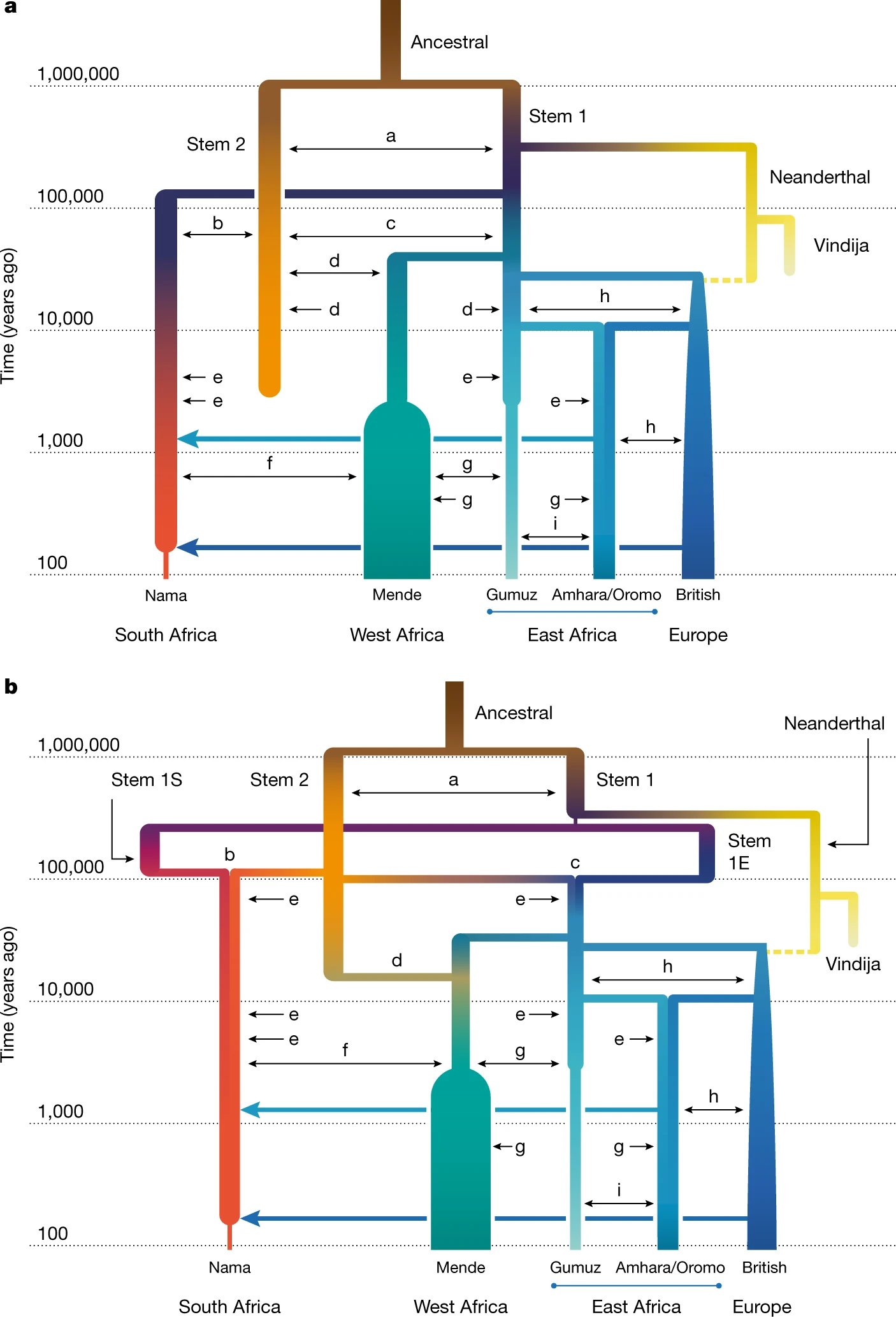Getting back to the out-of-africa failures, guess what,
new finds keep being made that prove history was not ever really written on human evolution.
The world is huge, human remains are fragile, and early populations were small. There are many things we still do not know, have not found, and many that were lost to time. But from those already found it is clear that human evolution happened across the whole world accessible to early humans. As was bound to happened
because they could walk across it!
How such a basic thing as the capacity of human, and necessarily also early human populations, to migrate was lost on previous
researchers, one can only speculate. But at least science can advance a funeral at a time...
Adding to the fun,
our older "predecessors" have also left skeletal remains out of Africa. Who could have guessed that monkeys could have lived and evolved also out of Africa huh?
A new fossil ape from an 8.7-million-year-old site in Türkiye is challenging long-accepted ideas of human origins and adding weight to the theory that the ancestors of African apes and humans evolved in Europe before migrating to Africa between nine and seven million years ago.
Analysis of a newly identified ape named Anadoluvius turkae recovered from the Çorakyerler fossil locality near Çankırı with the support of the Ministry of Culture and Tourism in Türkiye, shows Mediterranean fossil apes are diverse and are part of the first known radiation of early hominines—the group that includes African apes (chimpanzees, bonobos and gorillas), humans and their fossil ancestors.
The findings are described in a study published today in Communications Biology co-authored by an international team of researchers led by Professor David Begun at the University of Toronto (U of T) and Professor Ayla Sevim Erol at Ankara University.
"Our findings further suggest that hominines not only evolved in western and central Europe but spent over five million years evolving there and spreading to the eastern Mediterranean before eventually dispersing into Africa, probably as a consequence of changing environments and diminishing forests," said Begun, professor in the Department of Anthropology in the Faculty of Arts & Science at U of T. "The members of this radiation to which Anadoluvius belongs are currently only identified in Europe and Anatolia."
Earlier homo sapiens spread will also in due time be "discovered", as it is equally logic that
populations moved. If there aren't yet enough bones in stock in museums it is because they haven't been found yet. Absence of evidence was never proof of theories of absence.
It will be fun though if the reaction overshoots the other way, as the last piece previews:
"These findings contrast with the long-held view that African apes and humans evolved exclusively in Africa. While the remains of early hominines are abundant in Europe and Anatolia, they are completely absent from Africa until the first hominin appeared there about seven million years ago.
"This new evidence supports the hypothesis that hominines originated in Europe and dispersed into Africa along with many other mammals between nine and seven million years ago, though it does not definitively prove it. For that, we need to find more fossils from Europe and Africa between eight and seven million years old to establish a definitive connection between the two groups."
Imo they are wrong in this last speculation. The continents were connected, the environment didn't prevent migrations and the groups of apes evolving to humans must have mingled all along though those millions of years. But it is right to mock the certainties of the "out of Africa" theories purpoting that there was a single "tree" for humans with a single region of origin, and I thing what this gentleman was doing in that last comment was a bit of mocking.

